Are You Compatible? INFJs and Relationships
I’ve been putting off writing about the INFJ and compatibility in relationships for a while. Maybe it’s because I felt like it would be a little conceited to talk about how awesome INFJs are in relationships when I am one. Maybe it’s because pretty much every book out there says that INFJs do best with other intuitive types, and I’m married to a sensor. I guess that’s just the kind of rule-breaker I am!
Seriously though, I think a lot of it has to do with the fact that, as I’ve said before, I’m NOT a relationship expert and so I believe that (often) people take the MBTI® too seriously in their relationships. There have been those who question their relationships after finding a chart somewhere that says their type and their partner’s type are incompatible.
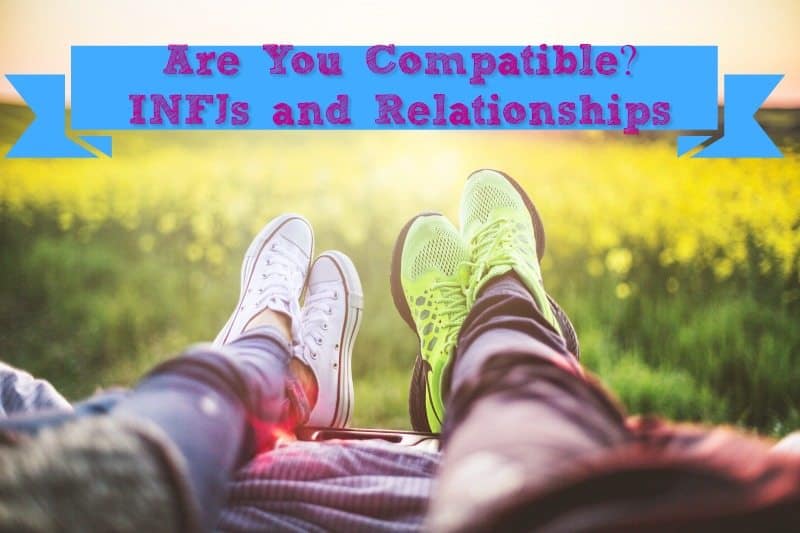
The MBTI® can tell us where potential strengths and weaknesses lie, but it does not say ‘avoid this type / be with that type’. There are pluses and minuses to any relationship, and people within a type can vary so much based on upbringing and environment. Yes, intuitives and intuitives tend to inherently understand each other’s perceptions better, as do sensors and sensors. However, you really can have a happy relationship with any type as long as you both do your best to be understanding and to work on balancing out your strengths and weaknesses.
Not sure what your personality type is? Take our new personality questionnaire here. Or you can take the official MBTI® here.
If you want more in-depth info on INFJs and relationships be sure to check out my eBook The INFJ – Understanding the Mystic
What INFJs Want In Relationships
Is the perfect soulmate too much to ask for? Really? One of the struggles of being an INFJ is that of being a true idealist and a perfectionist. While we are very warm, affirming people by nature – we also tend to be over-achievers in relationships. We want to be the “perfect” partner, and we tend to want our partner to be the “perfect” soulmate. We want someone who will make the effort to truly know us (which can take a while as we’re very private), and someone who will listen to our greatest hopes and dreams and ambitions. An INFJ would passionately cling to a life of singleness over being married to someone, or dating someone, who they feel little passion or depth of feeling for. INFJs are very independent, and while we long for a partner and soulmate in life, we have very little tendency to be desperate or to “settle” for anything less than someone with whom we share a very deep connection.
As David Kiersey so aptly puts it; “Finding that rare person with whom they can share their inner world is difficult for idealists, a painful process of trial and error, and often they vow not to date at all for periods of time rather than go through the search. For NFs, dating someone means more than physical fun or social experience; it is an opening of their heart and mind to the other person, in some cases a baring of their soul, and carries with it both a promise and an expectation of deep regard and mutual understanding.”
In relationships, INFJs usually seek intelligence (both intellectual and emotional), authenticity, and openness. Ideally, since we are always on a quest for personal growth, we want a partner who is seeking this same kind of personal or spiritual growth. We want to see the dark and light side of a person, not just the side you choose to show us. We’re pretty good at detecting phoniness or hidden agendas, so being honest and open is one of the best ways to impress us.
 What INFJs are Like in Relationships
What INFJs are Like in Relationships
I may have painted us to be quite a demanding group of people, and maybe you’re thinking “wow! these people sound high-maintenance!”, but let me add a point. INFJs are extremely loyal and understanding. Once we’ve made the decision to commit to a relationship with you, we will love you unreservedly and passionately – seeing the best that’s in you and overlooking a multitude of weaknesses. We have plenty of our own weaknesses, of which many of us are highly aware. Personal weaknesses are easily overlooked, but if you degrade or criticize one of our deeply held values it’s not likely to go so well.
As perfectionists, we INFJs work hard at our relationships to try to be the best we can be for our partner. We aren’t perfect, that’s true, but we certainly do try to be. We hold ourselves to a higher standard than we generally hold our mates and children; so while we may at times seem too idealistic, we are usually going to be extremely thoughtful and caring towards those we love. We are also (usually) very empathetic and good listeners, and we will do what we can to make sure harmony is maintained in the relationship.
INFJs are often very sincere romantics. We love to express our feelings through gifts; usually gifts with a symbolic meaning, like a beloved piece of music, a favorite book, a piece of artwork. We may write poetry, love letters, or find other ways to show you how deeply we really care. When in love, we often make ourselves more vulnerable than is naturally comfortable for us. This, for us, is a way of being generous and authentic with our partners. It may scare us to tell you that we love you, to write you that poem, or to have you listen to that song that describes how we feel. But showing you, or giving you, these long-locked pieces of our hearts, are one of the most generous ways that we as INFJs can show our love.
Keep in mind, INFJs usually are better at expressing their feelings through writing, than through speech. Many INFJs harbor deeper feelings than they say out loud. A great way of unlocking those feelings is by engaging in letter-writing (not just texting!). In letters or even emails, you will often see a side of the INFJ that they have a harder time showing in person.
So what should you do to make your INFJ happy?
– Be 100% yourself.
– Don’t be scared to think outside the box.
– Listen to our passions and our deep feelings.
– Talk about your passions and/or feelings.
– Have a hard time talking about feelings? Write them down! We love written communication.
– Be kind. We tend to be on the sensitive side.
On a side note, I have officially come to the conclusion that writing about what INFJs want in relationships as an INFJ is awkward. I feel like I’m pointing out all our strengths and ignoring our weaknesses…don’t worry, we’ll get to that!
What NOT to do:
– Be passive-aggressive. INFJs do not handle this well and tend to give up on relationships where they’re faced with this regularly.
– Dismiss our theories or insights. Ni is an INFJs most advanced function. While we’re not always right about our insights, we are more than most.
– Criticize our sensitivity. INFJs are often highly-sensitive people, and things like loud noises, bright lights, and lots of commotion can make us extremely overstimulated. We can also get very overwhelmed and frightened by horror movies (although we may still like them).
– Criticize our intense emotions. INFJs are not good at internally managing their feelings; their unique combination of Ni (introverted intuition) and Fe (extraverted feeling) makes it very hard for them to sort out what’s going on when they experience emotions. Because of this, they often feel overwhelmed by emotions and feelings they don’t even understand. It can become so intense that they become physically sick as a result. Because their feeling function is extraverted, they will easily understand other people’s feelings, but be unable to decipher their own. If they externalize (talk about) their feelings, they are then able to process them through extraverted feeling. So being able to listen, give your input, and not judge is an essential part of being in a healthy relationship with an INFJ.
INFJs and Guardians (SJ types) in Relationships:
INFJs and SJ types usually enjoy very comfortable and happy relationships. INFJs appreciate the stability and responsible nature of the SJ types. The SJs appreciate the warmth, passion, and sincerity of the INFJ. Guardians (SJ types) can feel like a stable force in the INFJs life since INFJs are prone to feeling scattered and of two minds about many things. In turn, the INFJ can add some creativity and intensity to the relationship that the guardian admires and appreciates. These two types will both take the relationship seriously and be very committed to each other. An INFJ usually (not always) will get along better with an ISFJ/ESFJ type than an ESTJ/ISTJ type, simply because both are concerned very much with maintaining harmony and will work to take care of each other’s feelings. ISFJs and ESFJs have Fe and Ti, which INFJs also have. INFJs share no common functions with ISTJs or ESTJs.
However, the MBTI shouldn’t always be a guideline for relationships and many STJs and INFJs have very happy relationships.
Problems arise for INFJs and SJs in relationships often due to the N/S difference. The SJ may tire of the INFJs flights of passion and imagination; and they may see the INFJ as being impractical, with their head in the clouds. The INFJ, in turn, can view the SJ as being “boring”, lacking vision, or being overly traditional. INFJs with thinking SJ types can feel that they are too bossy, or too insensitive to others’ feelings. If they aren’t careful, INFJs and SJ types can work at changing each other too much, to the effect that they both feel unappreciated and let down. It is extremely important to balance out your functions and appreciate the other’s strengths. INFJs would do well to appreciate the SJ partner’s introverted sensing. Admire that they have such an incredible memory and such an eye for details. Learn about their functions and give them the appreciation they deserve. SJ types should appreciate the INFJs vivid insights, and genuine warmth, and generosity.
INFJs and Artisan (SP Types) in Relationships:
INFJs and SP types can have a lot of fun and excitement in their relationships. INFJs appreciate the SPs fun-loving, spontaneous nature. SP types usually have a strong physical presence and are full of action and energy, due to strong extraverted sensing. The INFJ can really appreciate this since their Se is inferior, and their partner can help them to strengthen their Se. In turn, SP types are often impressed by the INFJs strong use of intuition, an area where they are naturally weaker. INFJs love the playfulness, live-in-the-moment, laid-back style of the SPs. In turn, the SP types are inspired by the INFJs depth, passion, and insights. This often is an “opposites attract” type of relationship, where both partners admire the other’s strengths since it is usually an area of their own personal weakness. Someone with weak Se may admire someone with strong Se. Someone with weak Ni might admire someone with strong Ni, etc,..
Usually, the major problems with the SP/INFJ relationships have to do with the N/S difference. SP types often have little interest in talking about their “inner lives”, and would rather be doing something other than talking. While INFJs are abstract and theoretical, SPs are extremely concrete and practical. SPs, more than any other type, live completely in the moment. INFJs live with their thoughts always on the future. INFJs live in their heads, SPs live fully in their bodies – taking in every sensation and being very aware of external stimuli. For this reason, the SP can often see the INFJ as having their head in the clouds or being flighty and unrealistic. The INFJ, in turn, can see the SP type as not thinking deeply enough, or being too focused on the here-and-now without regard to the big picture.
I myself am married to an ESTP so I can tell you from experience that the SP/INFJ relationship can work really well. He is really laid back like SPs tend to be, and that helps me to be calmer and to take things more one day at a time. He is also an optimist (most SP types are) and I’m more of a pessimist, so he keeps me really balanced in that respect. He appreciates my insights and trusts them, and even though he’s a sensor we’ve been able to have some really in-depth discussions about abstract concepts. Being with him has definitely helped me to balance out my Ti and Se functions, and he’s developed more of his Ni and Fe. When we got married, I remember seeing all these charts that said the INFJ/ESTP relationship was a REALLY bad idea. While we’ve only been married for 3 years, I think I can say with relative certainty that we shouldn’t put all our faith into charts, or even compatibility articles or posts like this one! Each pairing is going to have its own unique pros and cons regardless of MBTI® type, and the key is to be understanding of each other and appreciate each other’s strengths, even if they’re very different from your own.
INFJs and Idealists (NF Types) in Relationships:
INFJs do exceptionally well with other idealists. While many types struggle with relationships within their own temperament, INFJs often find that true soulmate with another NF type. Two NF types together can find deep satisfaction because they are finally able to be with someone who truly understands them, which is usually such an elusive thing for an INFJ to find. They will enjoy sharing their inner worlds with each other and will take very good care of each other’s emotional needs. They usually have very intense, romantic, intimate relationships that may feel “too good to be true” many times.
Unfortunately, no relationship is without its struggles – and this definitely applies to the INFJ/NF relationship. An INFJ and another NF type can be so concerned with each other’s feelings that they risk invading each other’s personal space. INFJs are extremely independent and private, and so after a while, they can feel a need to get away and have some of their space back. They can have the same effect on the other NF type in the relationship. The other problem area is that they are both bound to be so intensely passionate about their visions and goals that they run the risk of tiring each other out. INFJs and other NFs are also not known for being particularly good with money and practical affairs, which can end up causing difficulties throughout their relationship.
Sometimes the differences that partners have can provide a balancing/relieving effect to each other. For example, a feeler is getting carried away with their emotions, and a thinker helps them to see things in a more rational way. A thinker is being too tactless in their relationships, so a feeler helps them to find ways to re-word things. Two types in a relationship who share the same temperament may end up “living in a bubble” and become too focused on a narrow perspective of life and how things should be done.
INFJs and Rationals (NT Types) in Relationships:
The INFJ/Rational match is considered by many MBTI experts to be the best pairing. In the rational partner, the INFJ can find someone who, like them, thinks in abstract terms, who sees the world of possibilities, ideas, and theoretical concepts. Yet, unlike another NF, the NT has a certain autonomy and calmness that the NF finds to be intriguing and relieving since INFJs can get so overwhelmed with their own soul-searching and intense emotions. The NT type will likely see in the INFJ a warmth, passion, and sincerity that they admire and desire. Conversely, for the NF type, they see the NT type as being intelligent, intellectually stimulating, and brimming with ideas that are inspirational and fascinating. These two types together can engage each other’s intuition and ideas and can be an unstoppable force for innovation and brilliance. David Kiersey says that the best match for the INFJ out of all 16 types is the ENTP. He says:
“The reserved and schedule-minded Counselors (INFJs), with their complex, mysterious, symbolic inner-worlds, tend to become trapped by introspection and tied in ethical knots, and they can be freed up considerably by the outgoing and probing Inventors (ENTPs). Counselors might also find great satisfaction in trying to help the non-conformist, sometimes even reckless Inventors find their soul and significance in the scheme of things.”
Of course, there are always potential problem areas for any pairing. With this duo, the problems mainly lie in the T/F difference. The INFJs firm belief in their intuition may exasperate the ever logical NT types. The INFJ may also feel that the NT type lacks sensitivity or depth of concern for humanitarian issues. The NT type may find the INFJ overly absorbed in their feelings or in other people’s feelings and may wish for more of a calm, steady partner at times. However, if both types work to stay balanced and healthy and try their best to understand each other, this pairing can be incredibly successful.
INFJ Strengths in Relationships:
– Good listeners
– Warm and empathetic
– Sincere and authentic
– Open-minded and imaginative
– Protective of their partner’s feelings
– Have very high expectations of themselves (both a strength and a weakness)
– Take their commitments seriously
– Excellent communication skills, particularly in writing.
INFJ Weaknesses in Relationships:
– Very private. They can keep part of themselves hidden.
– Detest conflict or criticism
– Not usually good with practical day-to-day matters or finances
– Can hold their partners and themselves to an unrealistic standard
– Can have a very hard time leaving a bad relationship
What are your thoughts?
Are you an INFJ with some insights into relationships and MBTI compatibility? Are you a different type with any thoughts? Let me know what you think in the comments! I’d love to hear from you.
Find out more about your personality type in our eBook, Discovering You: Unlocking the Power of Personality Type.
Sources:
I wouldn’t be able to get very far without the help of these AMAZING books and web pages. If you want to know more about the INFJ, the other MBTI® types, or relationships, check out the sources for this post.
Please Understand Me II by David Kiersey
Just Your Type – Create the Relationship You’ve Always Wanted Using the Secrets of Personality Type by Paul D. Tieger
Personality Page – INFJ Relationships
Personality Junkie – INFJ Relationships (AWESOME web site!)
Get Your Free INFJ eBook
As a thank you for subscribing to my newsletter I will send you this free eBook PACKED with self-care tips, creativity hacks, and more! You'll also get a 3-day email course for understanding your personality type better!


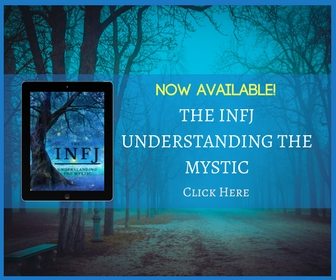
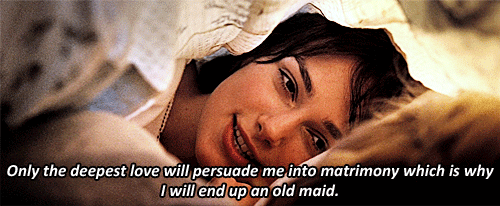
 What INFJs are Like in Relationships
What INFJs are Like in Relationships




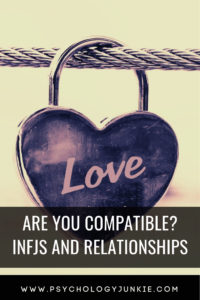


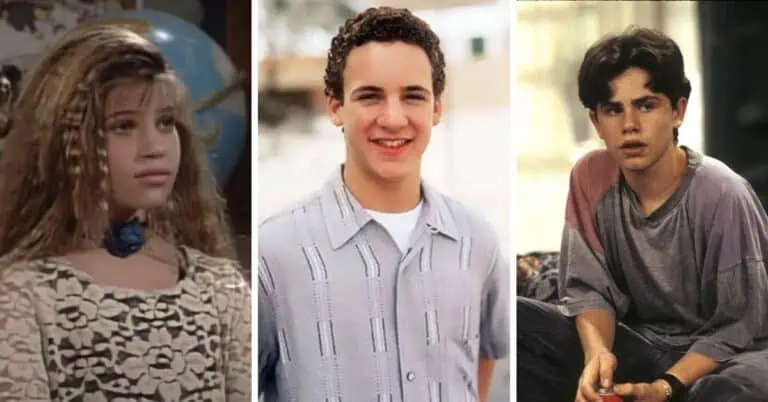
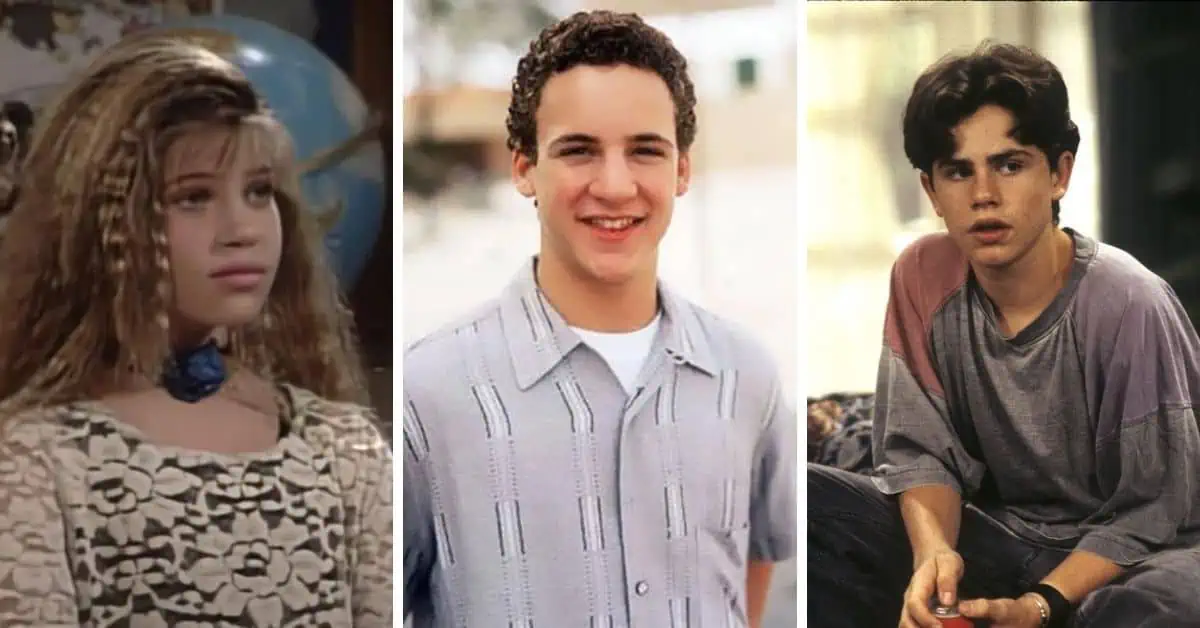
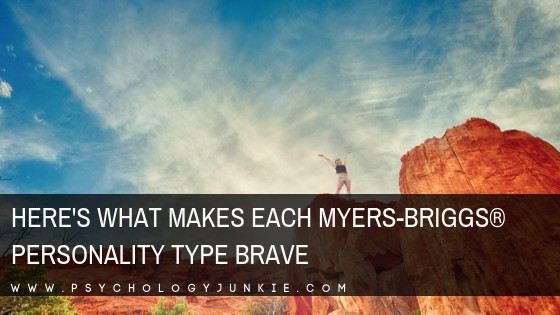

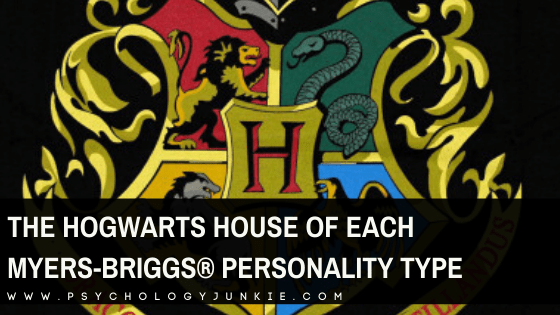

INFJ female here, approaching 30 year wedding anniversary to a wonderful ISTP tall, dark and handsome man! <3 🙂
INFJ left in tears remembering my INTP husband.
“intelligent, intellectually stimulating, and brimming with ideas that are inspirational and fascinating. These two types together can engage each other’s intuition and ideas and can be an unstoppable force for innovation and brilliance.”
Yep. It was all that!
Eight years after his death, still looking for someone to talk in metaphor with…
It seems like the dating world is full of Sensing people. Lonely.
INFJ female here. I’ve been casually dating an INTP male for a few months and I just started talking to an ISTP male…I like both!!! The INTP is so intelligent and interesting but emotionally distant. Not sure if I can get what I need from him emotionally yet. The ISTP is very grounding, sweet, and chivalrous. I think both offer INFJ’s a lot. Both are dorky which I find endearing. I have a thing for sensor’s (I find them so attractive because they’re so different from intuitive’s). This is my first time dating an NT and I really like the guy it’s just an adjustment dealing with the lack of affection or warmth-I find him hard to read. When he does let emotion out, it’s kind of overwhelming but very brief. I’m just not sure yet…
INFJ woman married to my ESTJ husband for 12 years… I agree with your comments to not take the compatibility charts too seriously. I feel that our relationship in particular works because we have strong identical values and religious beliefs. I love how my husband gets.things.done. like no one else. It’s very helpful as we’re trying to raise and homeschool our big family. He does bring stability for me! Our main struggle is to have deeper conversations. Having a deeper understanding of our personality types and knowing our love languages has been really helpful! Wish I had more time to go on about it…. : )
Hi there. I’m an INFJ. I’m married to an ISFP and together we are also dating an ISTJ. I have been involved in several relationships with several other types as well. And to be perfectly honest, I find relationships, whether they’re romantic, friends, family, strangers on the street, to be extremely problematic, to the point where over the past couple years my heretofore mild misanthropic tendencies have become almost crippling. I have so much disdain for humanity in general that it is sometimes difficult for me to sit in a room with others, even people that I know. This is almost exclusively due to being exposed to some of the darker aspects of humanity, which have come as a result of my move to Chicago where apathy for those around you is both expected and encouraged, but it is also due to the less than ideal romantic relationships I have had in the past. I’m hoping that maybe I can contribute in some minor way to INFJs looking for love, or other types interested in INFJs. I’m going to go ahead and list my experiences with some of the notable types I’ve been involved with.
INTJ: I have an INTJ friend who I am fond of, but who I feel unable to truly become close to. I find him to be aloof, overly self interested, and completely out of touch with even the most basic of social interactions. I dated an INTJ for almost three years, and for the most part we, like my friend and I, got along well enough. But she would regularly cheat on me, not even bother to try to hide it (often bragging about her liaisons) and then be totally mystified when I would get upset about what she did. I find them to be intelligent, analytical, introspective, to have similar humanitarian values to myself, but also to be egocentric, egotistical, and totally unaware of what negative consequences and reactions they may be pushing onto others.
ESFP: I have never dated anyone that made me more nervous, frustrated, self loathing, or distant from than this type: this is my second least favorite type. My two or three experiences with them were brief, but I hated almost every minute of our time together. Sexually, this is a fantastic pairing, but that’s where the good times stop. They live completely shallow lives, seeking instant gratification without much thought for the consequences of their actions or the deeper meanings of life. Everything is shallow and superficial with them, and it makes for an unpredictable and messy time. Again, the sex is good because you are both very compatible on your expectations, flexibility, exploration, curiosity, and eagerness to please. But while sex to me means being close to someone, to them it simply means feeling good. An ESFP will have many many sexual partners and not many stable relationships: the ones I knew attested to this idea. Because stability and longevity are boring to them, just as looking for the deeper meanings of life are boring. They want to have fun and to live in the moment. I had very little patience for it and was always wondering when they would get tired of me and cheat or up and leave.
ESTP: This was another type that was in the failure category. While she was capable of deeper idealism and was more aware of my feelings (or at least made more of a point to be more aware) than the ESFP, I found her to be vain, too unpredictable, frustrated by my sensitivity, an extreme social butterfly, and to be totally indifferent to my needs in terms of needing privacy and needing to take things one step at a time. She was a talented artist, a stable person with grounded ideals and life goals, and wanted to know things about me, all of which I’m attracted to in a person. But she would do things like flirt in front of me or sexually compliment strangers for my ears only, neither of which I was particularly fond of, and whenever she sensed the slightest amount of resistance or distance, she would become aggressive with her affections, making me feel trapped against a wall. I think if we had found a way to meet in the middle and communicate better, things could have worked out fairly well. But it would have been work.
ENTJ: while I have annoyances or frustrations in every type, I can usually find something nice to say about them as well. Not so for this type, which I hate with such intensity that it boarders on prejudice. I was with this person for three years, and we had a daughter together. I have never met anyone so emotionally manipulative, greedy, spiteful, aggressive, needing to be on top at the expense of others, and just plain cruel. She is always looking for a way to inflict pain on others or get a boost over others, and cares nothing for anyone but herself. By complimenting her, and feeding into her materialism, you are able to get into her good graces. But that does not mean she loves or even likes you, it means she loves or likes the things you can PROVIDE for her, which is not the same thing, yet she sees no difference between the ideals. This person kidnapped my infant child while I was at work and laughed as I begged to see her. She would do things like put our daughter on the table in front of us, forcing a fight in front of her which she knew I hated: but it was a weapon she could use against me. The ENTJ cares nothing for anyone but him or herself, and you can bet that you will be left in the dust as you work and work trying to find anything good about what you have together, as you work and work trying to fix things. It’s in vain. Get out while you still can.
ISTJ: I have been dating our girlfriend for a few months now, and I find there to be as many good as harmful aspects in my relationship with her (my brother is also this type). She is stable, with attainable goals, grounded dreams, and isn’t extremely high maintenance. She is affectionate and enjoys spending time with my wife and I. When we are apart she is capable of being alone, when we are together she is happy and close, like a clingy switch she can turn on and off. Which I find to be helpful. She is predictable and has bursts of energy and passion that I find endearing, and I find her to be kind and caring. But on the other hand, I find her to seek instant gratification a little too often, and to be absolutely content in straying away from deep ideas, and even deep conversations. She becomes frustrated and exasperated with my need to probe her reasoning behind her actions and beliefs, she fails to see the bigger picture when it comes to people or things she likes on a shallow level, allowing her personal feelings for the things she likes to prevent her from truly analyzing them, which in turn frustrates and exasperates me. She is a little too prone to become immersed in what is trendy or popular, be it in music and clothing tastes, or even world views and belief systems. These things could be because she has had a fairly rough life and introspection may be terrifying to her, though she is reasonably self aware. But without the high level of introspection that I possess and value in others, I continuously find myself frustrated with the shallow world in which she finds comfort. I also find myself disturbed by a level of wounded animal syndrome, where once you wrong her or someone she cares about, you no longer matter as much as a person. I hate bigots for obvious reasons, but my hatred comes from a place of care and worry, where I know what they could be like if only this or that could happen. To her, it’s more like I hate you because you did something I find to be bad. That’s as far as it goes, and she sees neither a problem in that or in the fact that her love and care are based on bias. In general I think this typing is a good match for the INFJ, but I think it comes at the expense of sacrificing parts of yourselves, and possibly even your authenticity, to meet the demands of your opposing ideals.
ISFP: I have been married to my wife for six years. For the most part, things have been remarkably good between us. We balance each other out well, she being more grounded and slow moving, and me being more abstract and trusting in foresight. While I am particular and sometimes difficult to please, she is laid back and willing to give me room to find out what I need to be comfortable. She has a practical way of thinking that balances out my day dreaming, and cares deeply for people in general. She has the ability to know many things about a person or a room of people that is almost as proficient as myself. Our main problems have been, like every other type I’ve ever been with for the most part, in communicating. Sometimes it feels like we are speaking a different language, and it gave us a lot of issues for a while (the same issue is prevalent in my ISTJ girlfriend). But eventually with practice and patience we did come to a point of being able to understand our basic needs and where we each are coming from. That doesn’t always mean that the language issue is fixed, but it does make figuring things out much more relaxed and amiable. This is my longest relationship to date, so I would say this is a good typing.
ENFP: I have never dated one, but my best friend is one, and I felt it important to include the honorable mention. One of my biggest problems with relating to others is that most people won’t give me the time necessary to see the real me. Deep down, I am caring and thoughtful, and am deeply concerned with the needs of others and the world in general. But on the outside, I’m a grumpy old man. My friend, who is curious about and intensely concerned with others, saw through the facade and broke down my walls. I believe he knows more about me than anyone, including my wife, because of how deeply he understands and connects to me as a person. He is messy and overly optimistic, impractical and can be a bit of an idiot, but based on personal experience and everything I have ever read about this type, I have always wanted to find an ENFP to be romantically involved with. They seem to be as close to perfect for my typing as it’s possible to get, which is downright surprising to me, as I am (and my type is) weird, and very unlike most people. But the ENFP doesn’t care about who you are or what you’ve done. They only want you and everyone else in the world to be happy, and will go to great lengths to find out exactly how to make you happy. Which I think is very beautiful.
I am an INFJ. I had a long-ish reply written to the article, but after reading through it to edit, I thought better of myself and erased all of my reply. I felt that the subject matter was too personal to share and that other people wouldn’t care much to read about it. Do any other INFJs do this…because I do this quite frequently!
I don’t know if this is a common trait of all INFJ types, but I as an INFJ definitely do this!! I’m very critical of the comment/statuses I write! Thank you for your comment 🙂
I do this all the time. Maybe it’s why INFJs are “better” at written communication than verbal…we can edit and think about what we really want to convey.
I’m an LMHC student now, INFJ dating ENTP and it is wild. We love this stuff. Psychology and learning about each other, we fight like crazy though (the debator), so I’m interested in learning more about us and our personalities in relation to our relationship!
You might reframe your perspective. A debate is different from a fight. A debate seeks to draw out the full range of an issue or the mind of the person presenting it. As an INFJ married to a passionate ENTP, this insight makes it interesting and fulfilling.
I am an INFJ that recently met and ESFJ and he is amazing. ESFJs are some of the most giving individuals there are, it’s almost overwhelming especially after being in relationships with selfish people. It helps to do the research on the different types to understand what you need out of a relationship. and to then date people with those qualities to find out if it really is a good fit. I have a great connection with intuitives but when it comes to the practicality of getting things done in life it sucks. I found that I really appreciate the sensitive caring nature of feelers but like having someone in my life that gets sees things I don’t because I’m stuck in my head & they get stuff done!! Almost makes me feel guilty:/
I am an INFJ married to an ESTJ an to be honest, it has been hard. He used to listen to me and my ideas, feelings and theories, b
An INFJ seeing an ISTP – although I feel like I understand how he functions, I still feel his “laziness” is making me unvalued.
Hi,
I’m a newbie in this, early in 30s. Damn, it’s a spot on. Thank you.
Question, how are these people handling when someone break their trust? Is it possible to gain it back?
Thank you in advance